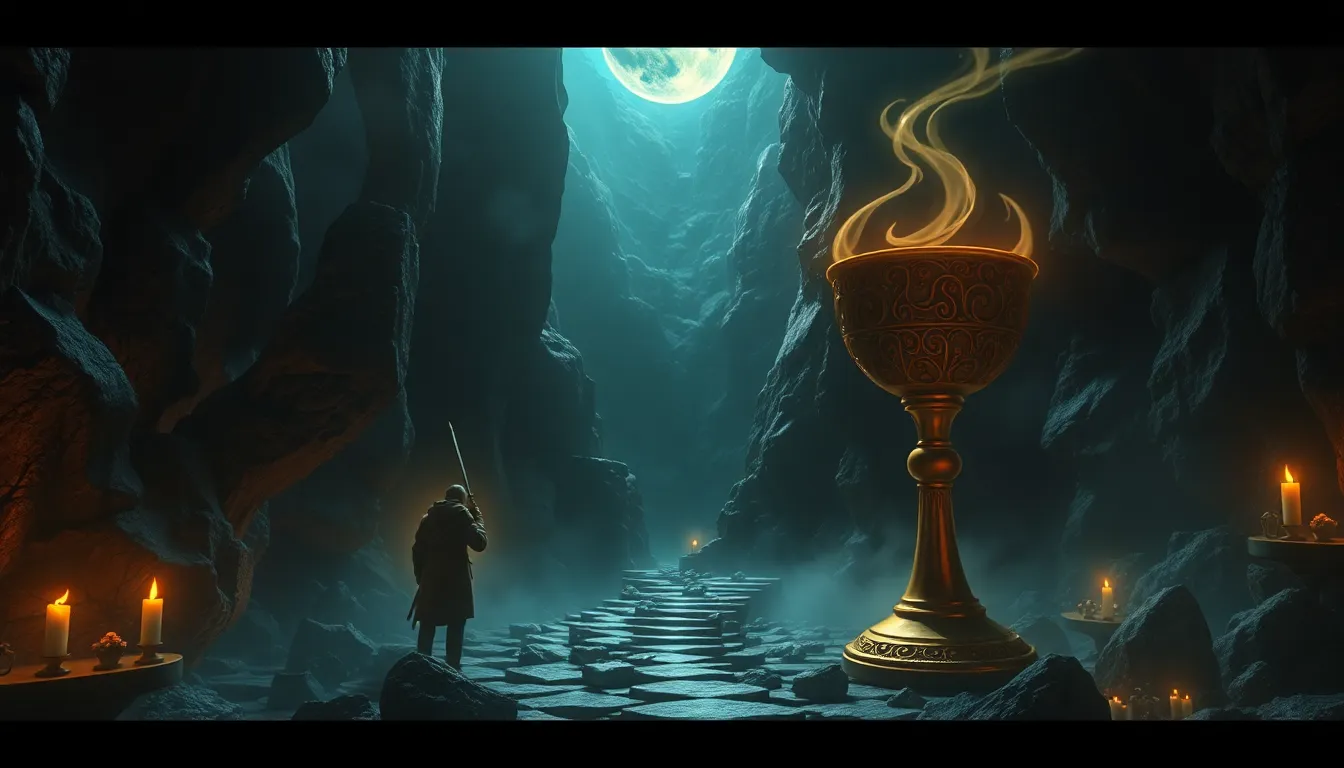The Most Influential Myths About Ancient Deities Across Cultures
1. Introduction to Ancient Deities
Ancient deities have played a significant role in shaping the worldviews of various cultures throughout history. Deities are often defined as supernatural beings that are revered and worshipped, embodying the values, beliefs, and aspirations of the societies that venerate them. Myths surrounding these deities serve as cultural narratives that convey profound truths and lessons about existence, morality, and the universe.
2. The Role of Myths in Shaping Societies
Myths are not just fanciful stories; they reflect the core values and beliefs of a society. They often serve multiple functions:
- **Explaining natural phenomena**: Myths provide explanations for events that may have been mysterious to ancient peoples, such as weather patterns or celestial occurrences.
- **Establishing social norms**: Myths often encode moral lessons and serve as a guide for acceptable behavior within a community.
- **Fostering unity**: Shared myths can strengthen community bonds, creating a sense of identity and belonging among members.
Furthermore, myths play a crucial role in moral and ethical education, shaping the ideals and values that govern human behavior.
3. Major Ancient Civilizations and Their Deities
Throughout history, several ancient civilizations have emerged, each with its own pantheon of gods and goddesses:
- **Egyptian Civilization**: Deities such as Ra (the sun god) and Osiris (god of the afterlife) were central to Egyptian religion.
- **Greek Civilization**: Gods like Zeus (the king of the gods) and Athena (goddess of wisdom) played vital roles in Greek mythology.
- **Mesopotamian Civilization**: Deities like Marduk (the god of creation) and Ishtar (goddess of love and war) were revered by the Sumerians and Babylonians.
- **Hindu Civilization**: A vast array of deities, including Brahma (the creator), Vishnu (the preserver), and Shiva (the destroyer), form the cornerstone of Hindu beliefs.
- **Indigenous Cultures**: Many indigenous cultures have their unique sets of deities, such as the Great Spirit in Native American beliefs and various nature deities in African traditions.
4. Creation Myths: The Birth of the Cosmos
Creation myths are fundamental to understanding how different cultures perceive the origins of the universe. These myths often involve deities who play pivotal roles in the creation of the world and humanity. Here are a few notable examples:
- **Egyptian Myth**: The god Atum created the world from the primordial waters of chaos.
- **Greek Myth**: In the beginning, there was Chaos, from which emerged Gaia (Earth) and Uranus (Sky), leading to the birth of the Titans.
- **Hindu Myth**: The Rigveda describes the cosmic being Purusha, whose sacrifice led to the creation of the universe.
These narratives not only explain the origins of the cosmos but also reflect the cultural values of the societies that tell them.
5. Myths of Death and the Afterlife
Deities associated with death and the afterlife often embody a culture’s beliefs about mortality and the journey beyond life. For instance:
- **Osiris**: In Egyptian mythology, Osiris is the god of the afterlife, responsible for judging the souls of the deceased.
- **Hades**: In Greek mythology, Hades rules the Underworld, overseeing the dead and ensuring the balance of life and death.
- **Yama**: In Hindu beliefs, Yama is the god of death, who guides souls to their next destination.
These myths are crucial in shaping rituals surrounding death, influencing how societies mourn and honor their deceased.
6. Heroic Myths and Divine Intervention
Deities often play essential roles in the stories of heroes and legendary figures, providing them with guidance, assistance, or even obstacles. For example:
- **Achilles**: In Greek mythology, Achilles receives divine support from his mother, Thetis, a sea goddess.
- **Hercules**: His quests are often aided by the gods, illustrating the interplay between divine and mortal realms.
- **Rama**: In the Hindu epic Ramayana, Rama’s journey to rescue Sita is marked by interventions from various deities.
These narratives not only inspire heroism but also reflect the values and ideals that societies strive to embody.
7. Gender and Power in Mythology
The representation of female deities in mythology often reveals the dynamics of power between genders within cultures. Some prominent female deities include:
- **Isis**: An Egyptian goddess symbolizing motherhood, magic, and fertility.
- **Athena**: A Greek goddess known for her wisdom and warfare skills, representing female empowerment.
- **Kali**: A fierce Hindu goddess associated with destruction and rebirth, challenging traditional female roles.
The dynamics between male and female deities can reflect societal attitudes toward gender, power, and authority.
8. The Evolution of Myths Over Time
As societies evolve, so do their myths. Historical events, cultural exchanges, and societal shifts can lead to the adaptation and reinterpretation of ancient myths. For example:
- **Syncretism**: The merging of different religious beliefs, such as the adaptation of Greek deities into Roman culture.
- **Modern reinterpretations**: Contemporary literature and media often revisit and reshape ancient myths to address modern themes and issues.
This evolution reflects the ongoing relevance of these myths and their ability to resonate with new generations.
9. The Legacy of Ancient Myths in Modern Culture
The influence of ancient deities permeates modern culture, manifesting in literature, art, and media. Examples include:
- **Literature**: Novels and poems often draw on mythological themes and characters, such as Neil Gaiman’s “American Gods”.
- **Film**: Movies like “Clash of the Titans” and “The Avengers” feature reinterpretations of ancient myths and heroes.
- **Art**: Many artists continue to explore mythological themes, creating works that resonate with contemporary audiences.
These adaptations highlight the enduring fascination with ancient myths and their relevance to modern life.
10. Conclusion: The Enduring Impact of Ancient Myths
Ancient myths about deities have profoundly shaped human culture, reflecting societal values, beliefs, and aspirations. Their influence extends into modern times, inspiring literature, art, and media while continuing to provide insights into human nature and our place in the universe. As we explore these myths, we can uncover timeless truths and values that remain relevant, paving the way for future exploration and understanding of our shared humanity.



